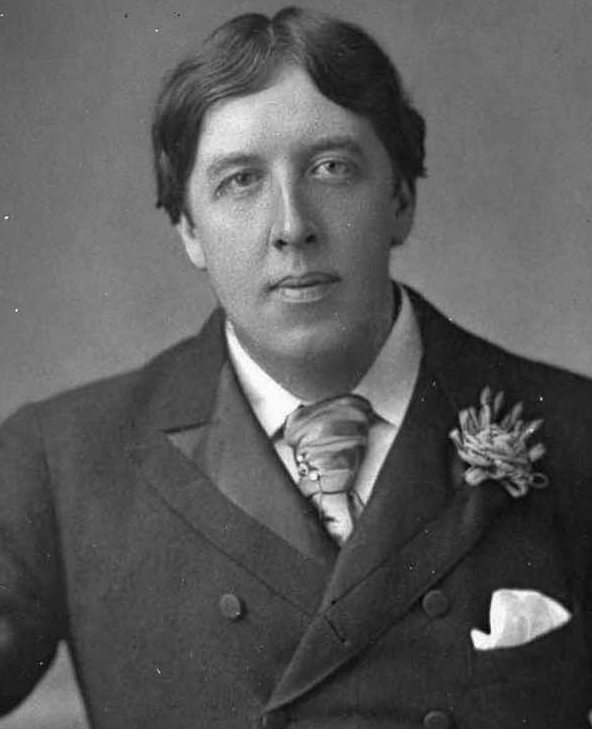1854 Birth of Oscar Wilde
 The Irish playwright and novelist Oscar Fingal O’Flahertie Wills Wilde was born on this date to a prosperous upper-middle class family in Dublin. After a brilliant apprenticeship at Oxford, Wilde launched himself into London society, becoming famous for his wit and barbed attacks on social conventions.
The Irish playwright and novelist Oscar Fingal O’Flahertie Wills Wilde was born on this date to a prosperous upper-middle class family in Dublin. After a brilliant apprenticeship at Oxford, Wilde launched himself into London society, becoming famous for his wit and barbed attacks on social conventions.
Though a loving father and husband, Wilde entered the demimonde of gay culture, taking his pleasure with lower-class boys and the corrupt son of aristocrats. These associations brought him down, robbed of his place in society and sentenced to two years hard labour in Reading Gaol. In De Profundis Wilde describes the humiliation of his journey to prison:
Everything about my tragedy has been hideous, mean, repellent, lacking in style; our very dress makes us grotesque. We are the zanies of sorrow. We are clowns whose hearts are broken. We are specially designed to appeal to the sense of humour. On November 13th, 1895, I was brought down here from London. From two o’clock till half-past two on that day I had to stand on the centre platform of Clapham Junction in convict dress, and handcuffed, for the world to look at. I had been taken out of the hospital ward without a moment’s notice being given to me. Of all possible objects I was the most grotesque. When people saw me they laughed. Each train as it came up swelled the audience. Nothing could exceed their amusement. That was, of course, before they knew who I was. As soon as they had been informed they laughed still more. For half an hour I stood there in the grey November rain surrounded by a jeering mob.
For a year after that was done to me I wept every day at the same hour and for the same space of time. That is not such a tragic thing as possibly it sounds to you. To those who are in prison tears are a part of every day’s experience. A day in prison on which one does not weep is a day on which one’s heart is hard, not a day on which one’s heart is happy.
A complex man. Clearly kind, generous, warm and good hearted.
But, also fatuous, self-indulgent, injudicious and, ultimately, rather exploitive.
He is so teeming with contradictions, I never really know where I come down with him. In my youth, it wouldn’t be too much to say that he was a transformative influence on my life. Today, I’m more conflicted.
Full of contradictions, indeed. It’s hard to think of a more delicious dramatic confection than “The Importance of Being Earnest” but in his other plays he goes into his old bag of tricks too often — try reading “An Ideal Husband” and “Lady Windermere’s Fan” back to back. Today we look at Wilde’s persecution and trial as a tragedy but we ignore the lives of the lower-class boys he preyed on. It’s not that he lacked friends with common sense and good advice; Wilde followed his own evil genius down into the swamp. A one-man Shakespearean tragedy.